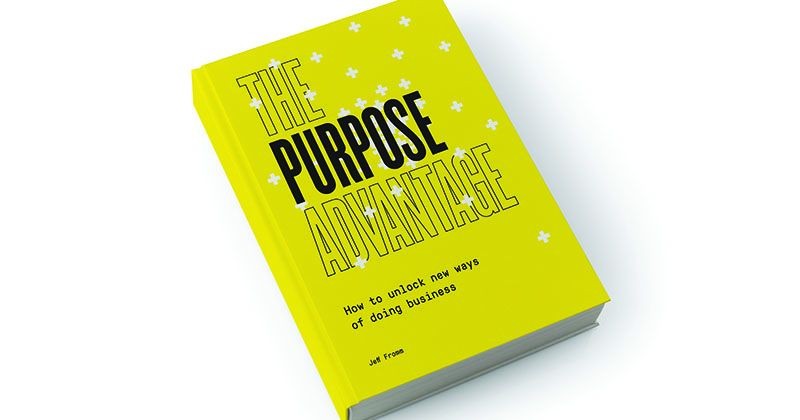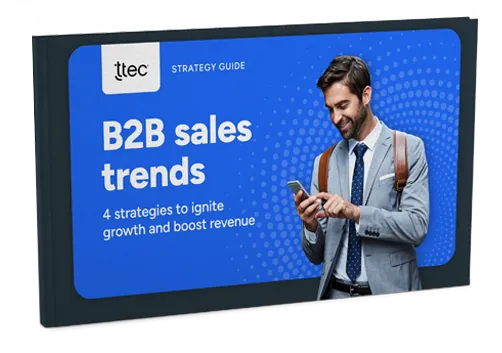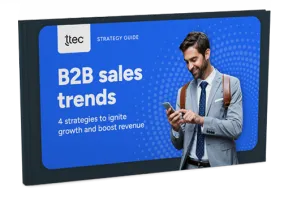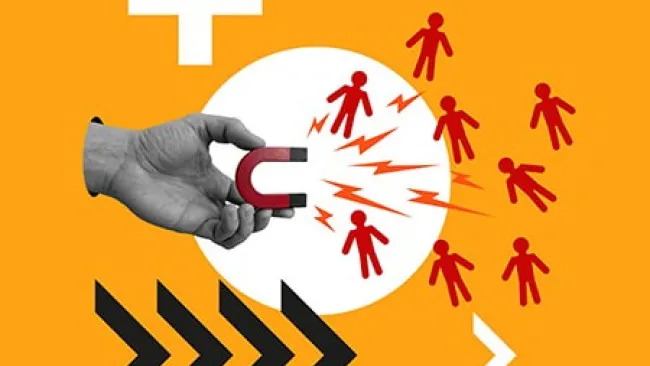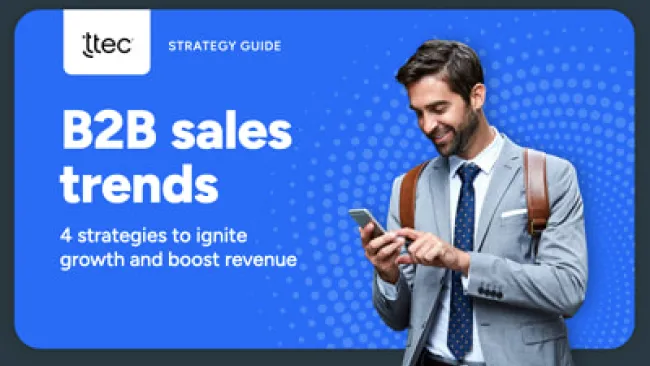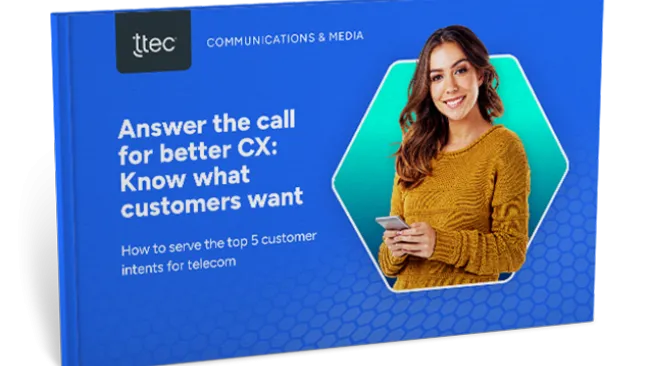Delivering customer experiences is like making pizza—anyone can do it, but not everyone can tell which one tastes best.
Author and speaker Jeff Fromm saw that in MOD Pizza, a restaurant chain that not only serves up artisan pies, but also second chances. MOD Pizza is known for giving ex-convicts a new chance in the workforce, which it ingrains in its deep-set values of giving everyone an opportunity.
This is the opening of Fromm’s new book, The Purpose Advantage. In it, he dives into what he identifies as a need for brands to build strong emotional connections with their customers, a key factor as products and services become harder to differentiate. We recently had the opportunity to discuss with him the mindset needed to create meaningful customer moments.
What are the advantages of having a deeper connection to your customers?
Jeff Fromm: Today’s consumer and, frankly, employees who work for companies, expect purpose and more. Unless you compete on low price and hyper convenience [Amazon], you’re going to have to think about this.
But for the vast majority of other brands, we compete for consumers and employees in a world where consumers have lots of choices and unemployment is remarkably low. And therefore purpose-driven brands have an edge.
And when I say, “purpose and more” let me illustrate: It’s not purpose on an absolute basis, it’s purpose in combination with other factors. I could be Chobani [a Greek yogurt company] and be innovative and have a purpose and sustainability gene that makes my innovation more valuable to consumers. Or I could be Nike focused on consumer culture and talking about social issues.
Different brands are going to play this out through different ways. And in the book we highlight the various mindsets that drive consumer preference.
Going back to MOD Pizza, it has that unique sense of purpose and values that makes it more than just another pizza chain.
JF: Their purpose is about second chances. They employ a lot of people who are down on their luck. Maybe they had a scrape with the law, maybe they had a gap in their employment. They even give people a second chance when they are ordering. The point of the matter is that second-chance culture creates a purpose advantage in the sense that they’re going to have a much better retention rate in a category where the cost of acquiring and retaining labor is a huge part of your financial statement and impacts guest satisfaction and loyalty on the other side.
It’s a double whammy. It impacts the cost of doing business and it impacts their ability to deliver a high-end guest experience. And their purpose fuels their flywheel.
In your book, you described six consumer mindsets: social circle, self, innovation, trust, accessibility, and purpose. How can understanding them help a brand?
JF: Social Circle is about cultural conversations, not social media per se. And so cultural conversation brands have an advantage. They get word of mouth and word of mouse [clicks]. I use the topic of Nike and brand purpose. Well what is Nike’s brand purpose? What is Ben and Jerry’s purpose too? It fuels cultural conversation. These are brands whose purpose is to start dialogue on topics that are within their brand’s editorial authority and ultimately drive word of mouth and word of mouse, which is powerful.
Self is the emotional connection consumers have to a brand, and emotional connections are so important in decision making. Today’s consumer makes decisions quickly. They don’t walk down a grocery store in the cereal aisle and say, “Here’s the product price per ounce for every box, here’s a sustainability score, etc.” They just say, “You know what, I’m going to grab this one.”
And so brands that have stronger emotional connections, [these] self-oriented kind of brands have price elasticity and frequency use of advantages. And when I say price elasticity and frequency of use, that means that when somebody else isn’t on deal, they’re going to probably win the day. And that’s pretty significant.
And then we have innovation.
JF: Innovation is truly that. My definition of innovation is “the useful new”—it could be the product or service or it could be the experience you have before or after you buy that product or service. You might innovate on the content you get to inspire your use cases.
And so innovation in our research has been increasingly important year over year and my example on Chobani would be purpose and innovation. Chobani is very innovative. They created their tiny yogurt company that became the big yogurt company by creating a category called Greek. And then they reinvented the category for afternoon snacking around palates that require more sugar with a sidecar. This is a company that understands how to innovate again and again and has a strong sustainability, purpose-driven platform.
Trust is tricky and very important, but it’s earned by action. Where brands can get in trouble is they’ll have a trust problem and try to get their way out of that problem through maybe traditional forms of advertising. And that usually is going to be a fail. What you have to do is take actions to earn trust. And usually that’s a longer, more painful road for a brand than they often want. But that’s required.
We found in the research that you either are getting it or you don’t. You don’t usually get an incremental benefit from exceeding performance on trust; you’re either meeting expectations or not. And if you’re not, there’s a penalty, and if you’re exceeding, there’s no bonus. So you get penalized for failing, but no extra credit generally for doing more than exceeding. But you have to have it, it’s required! It’s non-negotiable.
Then there is accessibility, which is a big win for emerging hypergrowth companies like Casper and Quip.
JF: Accessibility is about hyper useful and hyper convenience. And I think it’s important that people understand many of the successful and non-purpose driven brands fall into the accessibility category. Amazon, Uber, Airbnb—they usually win on price and convenience and not just ordinary levels of convenience. They are radically easy to use, convenient, and usually help the consumer save money.
Whether all of them, including Casper, can sustain being convenient, time will tell. Amazon’s probably done the best job of sustaining it because the definition of convenience is constantly changing as other competitors get closer. I think that the challenge is if you compete on that basis, you have to be continually reinventing that definition.
So that means it’s going to have to be convenience plus something. Could be content marketing, it could be some piece purpose-driven strategy, could be low prices. There are different ways to go, but you’re going to have to continually innovate around what’s going to drive value to that consumer.
Do brands that strongly align themselves with a specific purpose or set of beliefs risk alienating parts of the market?
JF: Well I think for most brands it’s going to be smart to have strong sense of purpose grounded in your history and the equity that’s right for your brand. You can’t just make up a purpose and start
communicating it instantly without having taken brand action and expect that to be a winning strategy. That’ll be a disaster.
But I think brands that have history like Ben and Jerry’s, they’re going to take on social issues. And while that may alienate a few, people probably love Ben and Jerry’s for two reasons: their flavors and their purpose. And it’s a combination, right?
People make emotional decisions. So, I think that’s part and parcel of what’s going on there. But you certainly run a risk. Nike ran a risk with the decision to stand behind Colin Kaepernick. I think it was a good business decision given their historic equity on the topics that he represents. And it was a good decision with respect to how our research shows young consumers feel about those topics. Will they alienate anyone? Sure. Is it bad? I don’t think so. I think Nike will be successful because they have a clear view of their brand.
Any lessons for the future?
JF: Well, the conversation is going to continue to evolve as the definition of expectations from consumers evolves. But the important thing to understand is doing good and being purposeful does not mean not making a profit. Most of the brands that are highly successful, purposeful brands also make a profit. They’re inextricably linked and it’s their ability to connect the flywheel of their business Model [that leads to their success]. It’s doing both. Not one at the expense of others.
